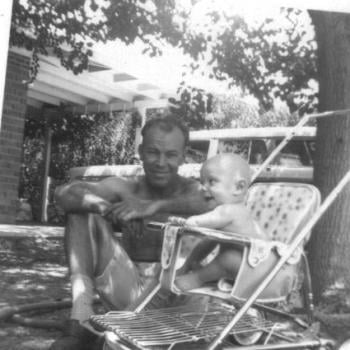Jefferson did not view the "wall of separation" to mean that religion should not play a role in the national life. Such a view does not account for the fact that Jefferson regularly attended religious services in the House of Representatives. It does not account for our military chaplaincy program. And it does not account for the fact that our coins and federal buildings reference the name of God. While Jefferson clearly believed that religion should stay out of government, he seems to have also believed that there were times when "government, although it could not take coercive initiatives in the religious sphere, might serve as a passive, impartial venue for voluntary religious activities."
Historian James Hutson, the chief of the manuscript division of the Library of Congress, has defended Jefferson's "wall" metaphor, but claims that throughout American history the wall was "punctuated by many checkpoints." Jefferson, he argues, "would have had no objection if, at these checkpoints, government invited religion to pass through and make itself at home in the use of its spaces, structures, and facilities, provided that it treated equally everyone who wanted to come along."
Santorum has some solid historical legs to stand upon when he attacks the "separation of church and state." It would be foolish to suggest that people do not bring their faith to bear on their political decisions. Here Santorum may have an unlikely ally. In a 2006 speech, President Barack Obama said that "secularists are wrong when they ask believers to leave their religion at the door before entering into the public square.
But Kennedy used the phrase "separation of church and state" differently. He used it at a time when the phrase was not a rallying cry in the culture wars. Kennedy employed the phrase simply as a metaphor to suggest that, at some level, religion and government should remain separate. Santorum may have scored political points by attacking Kennedy, but he failed to understand the true meaning of Kennedy's speech.





